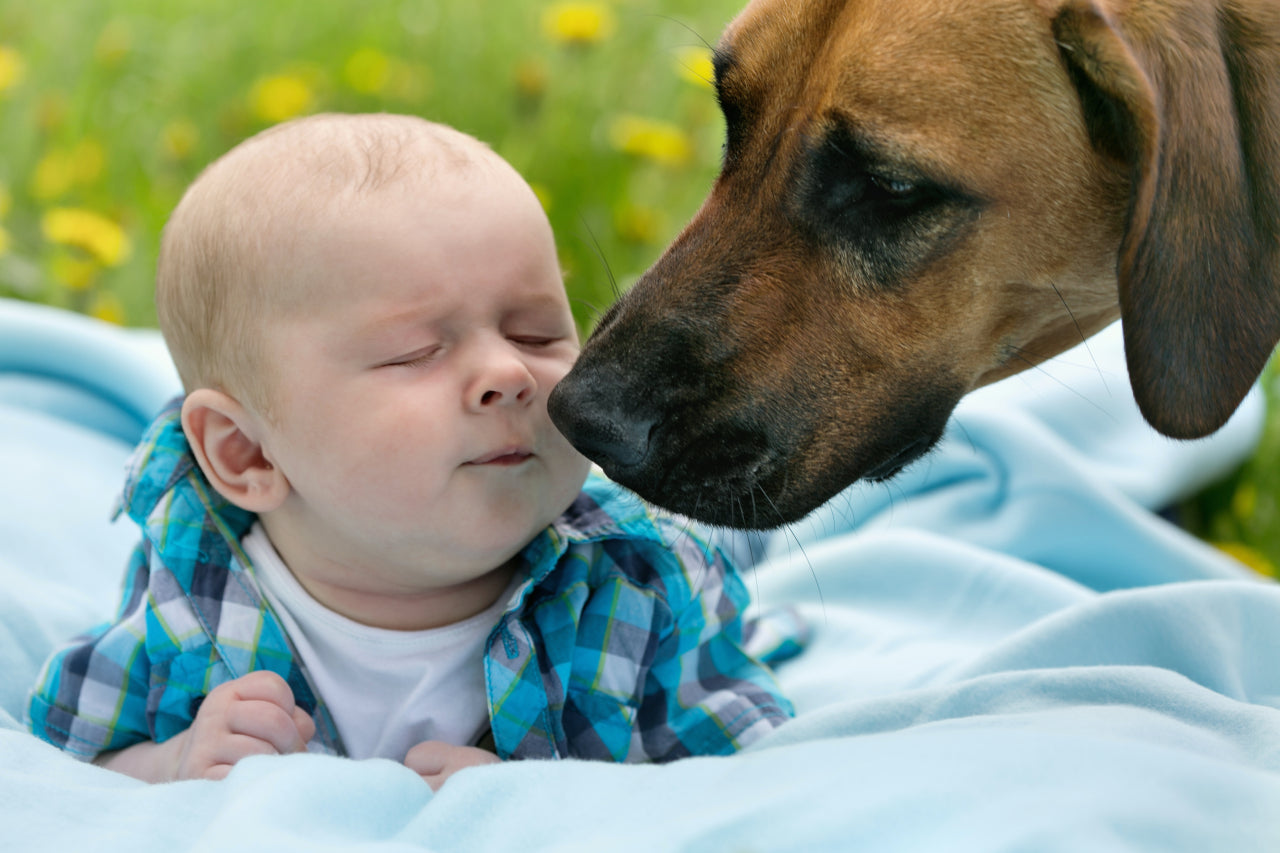



October 08, 2019 4 min read
Bringing home a new baby is one of the most exciting times in a family. You have been waiting for so long, watching your tiny one grow for months, dreaming about her first laugh and going back and forth on baby names. But what may be an exhilarating (and exhausting) time for new parents may be an absolute nightmare for your pets. They have no idea what is going on or why the thing in the blankets is such a big deal. Your pet may even be jealous that they’re no longer the center of attention, and that can be dangerous for both dogs and babies. It does not have to be a concern, though; babies and pets can be fast friends if you follow a few simple guidelines.
Long before your new baby makes her debut, you should start to introduce your dog to the concept of kids. Dogs and babies can live in harmony if they are both showed some basic consideration. Go slowly, allowing plenty of time for him to adapt to each changing aspect of his life. An older dog that has lived alone with you for years may need more time to adjust than a puppy.
As your due date approaches, doing some things to respect your dog’s space and routine can help stop trouble between babies and dogs before it starts. Things to try and include in your prenatal plans:
Once your tiny bundle of joy is born, there are a few things you can do to make the introduction easier for both puppy and baby. For instance, you can:
Babies grow and mature quickly and it can be hard for a dog to keep up. It feels like one minute they are tiny and sit still and smell like milk, the next they are walking and screaming and smell like fruit snacks and mud.
Nevertheless, with a couple of simple rules your babies and pets can live nicely together.
Never EVER allow your baby to pull, poke, or sit on your pet. Make sure she understands from an early age how to touch your pet gently and with respect. Learn your pet's body language and keep a close eye on their interactions. Remove the child immediately if your pet shows you he is done with playtime, but do not punish your pet. You want to encourage him to show you when he has had enough of the baby; if he does not, or nobody is paying attention, a quick bite may be the next warning.
Make sure your pet has a safe zone to retreat to. Your child should be taught to never play in his crate or on the cat tree, for instance. Any invasion of personal space by the baby may be met with a nip or a swipe of claws, so it is best to avoid that confrontation.
Allowing your pet time to slowly adapt to the idea of having a kid around BEFORE you have your baby is ideal. Make sure he does not feel threatened by the baby and make sure the baby learns to not hurt the dog, and everyone can survive the honeymoon period!